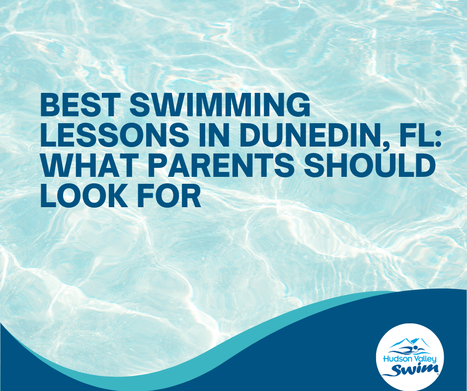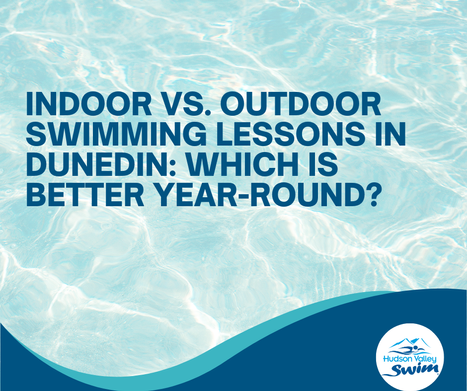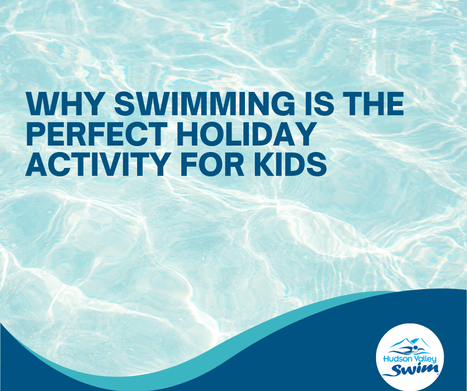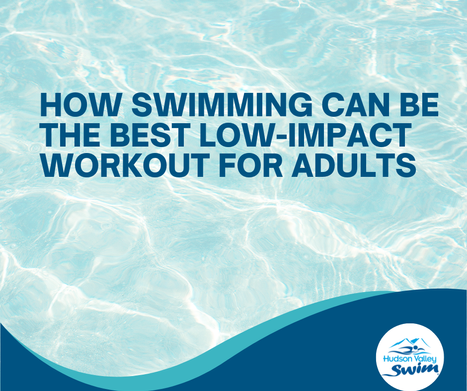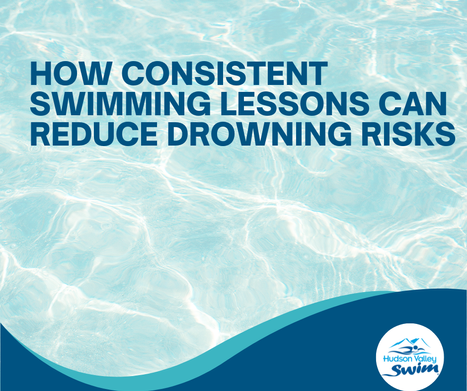Blog
Best Swimming Lessons in Dunedin, FL: What Parents Should Look For
Choosing the Right Swimming Lessons in Dunedin, FL
With Dunedin’s sunny weather, nearby beaches, and abundance of pools, swimming is more than just a fun activity—it’s an essential life skill. For parents, finding the best swimming lessons in Dunedin, FL means choosing a program that prioritizes safety, confidence, and skill development while fitting into busy family schedules.
Here’s what parents should look for when selecting a swim school:
1. Certified, Experienced Instructors
The foundation of any quality swim program is its instructors. Look for:
-
Certified swim teachers with experience working with children
-
Ongoing training in water safety and child development
-
A calm, encouraging teaching style that builds confidence
Experienced instructors know how to adapt lessons for toddlers, beginners, and advanced swimmers—ensuring every child progresses safely and enjoys the process.
2. A Strong Focus on Water Safety
In Florida, water safety is crucial. The best swimming lessons in Dunedin emphasize:
-
Floating and breath control
-
Safe pool entry and exit
more
Indoor vs. Outdoor Swimming Lessons in Dunedin: Which Is Better Year-Round?
Dunedin’s sunny weather makes outdoor swimming tempting, but Florida’s heat, humidity, and sudden storms raise an important question for parents: Are indoor or outdoor swimming lessons better year-round in Dunedin?
Understanding the pros and cons of each option helps families choose the best environment for consistent learning, safety, and water confidence.
Outdoor Swimming Lessons: Pros and Considerations
Benefits of Outdoor Swim Lessons
Outdoor swimming lessons provide:
-
Fresh air and natural sunlight
-
Familiar pool settings like backyard pools
-
A fun, summer-style experience
Seasonal programs can be effective—especially when the weather is predictable and mild.
Challenges in Dunedin’s Climate
However, outdoor lessons in Dunedin face some challenges:
-
High heat and humidity during summer
-
Frequent afternoon thunderstorms
-
Weather-related cancellations that disrupt consistency
Inconsistent scheduling can slow progress, particularly for toddlers and beginners.
Indoor Swimming Lessons: A Year-Round Advantage
moreMaking Waves Together: Hudson Valley Swim & Every Child A Swimmer Unite for Water Safety
Water safety is more than just a skill — it's a life-saving imperative. That’s the core of what drives Hudson Valley Swim and Every Child A Swimmer (ECAS), and their partnership is making a real difference in communities across the country.
A Shared Mission: Lifesaving Through Swim Education
Hudson Valley Swim believes deeply in its motto: “Empowering Safe Swimmers For Life.” Since it was founded in 2003, the company has taught infants through adults to swim, emphasizing safety, skill, and confidence. ECAS, meanwhile, is on a parallel mission: to make swim lessons accessible for children who might not otherwise be able to afford them. Through its scholarship program, ECAS provides low- to no-cost swim lessons so that every child has the chance to learn life-saving water skills.
How the Partnership Works
Together, Hudson Valley Swim and ECAS are breaking down barriers to swim education in several powerful ways:
Scholarship Access
Hudson Valley Swim is one of the trusted swim school providers in ECAS’s network, offering scholarship-supported classes to families who qualify for ECAS’s grant program. These lessons don’t just teach swimming — they teach water safety, self-rescue, and how to be confident in and around the water.
more
Common Mistakes Parents Make with Winter Swim Schedules in Dunedin, FL (and How to Fix Them)
Winter in Dunedin, FL, can be tricky for keeping kids active. Swimming is a lifesaver during the colder months—but even with the best intentions, many parents fall into scheduling pitfalls that slow progress or cause frustration. Knowing the common mistakes—and how to fix them—can make your child’s winter swim experience consistent, fun, and effective.
Mistake 1: Skipping Lessons Too Often
With holidays, school breaks, and family trips, it’s easy to miss swim lessons. While occasional breaks are fine, skipping too many sessions can slow skill development and reduce confidence in the water.
How to fix it:
-
Treat lessons like any other important appointment.
-
Schedule make-up lessons when possible.
-
Keep a consistent weekly rhythm, even in December and January.
Mistake 2: Assuming Indoor Pools Mean Less Preparation
Some parents think winter means kids can relax and swim less. In reality, winter lessons are crucial to maintain skills and prepare for the next summer season. Skills lost over the winter months are hard to regain.
How to fix it:
-
Keep lessons on a regular schedule, even in colder months.
more
Why Swimming Is the Perfect Holiday Activity for Kids in Dunedin, FL
The holiday season in Dunedin, FL, is full of family gatherings, festive fun, and cozy indoor days. While it’s a magical time for kids, it can also mean more screen time, less physical activity, and extra energy to burn. Swimming is the perfect holiday activity that keeps children active, healthy, and entertained—even during the winter months.
Keep Kids Moving During the Winter in Dunedin
Even in Florida, shorter daylight hours and cooler winter mornings can limit outdoor play. Indoor swimming provides a warm, safe environment for kids to stay active. Unlike other indoor activities that involve sitting, swimming engages the entire body, building strength, coordination, and cardiovascular health. Just 30 minutes in the pool can help children release energy, maintain a healthy routine, and stay active throughout the busy holiday season.
Avoid Excessive Screen Time
School breaks can lead to hours spent on phones, tablets, or TV. While some screen time is fine, too much can impact sleep, mood, and overall health. Swimming offers a fun, engaging alternative that’s both physically active and socially interactive. In the pool, kids are challenged, learning new skills, and staying active without staring at a screen.
moreHow Swimming Can Be the Best Low-Impact Workout for Adults in Dunedin, FL
If running hurts your knees, lifting weights feels intimidating, or you’re looking for a fun way to stay active, swimming might be your perfect workout. It’s one of the few exercises that strengthens your body, protects your joints, and boosts your mind — all at the same time.
At Hudson Valley Swim Dunedin, we believe swimming isn’t just for kids. Our adult swim lessons in Dunedin are designed to help you move better, feel stronger, and enjoy the water year-round.
Why Swimming Is Low-Impact but High-Reward
Unlike land-based workouts, swimming takes pressure off your joints because water supports about 90% of your body weight. That means less strain on your knees, hips, and back, making it ideal for adults of all ages and fitness levels.
While gentle on the body, swimming provides a full-body workout that tones muscles, increases endurance, and burns calories efficiently. In fact, swimming can burn as many calories as running without the harsh impact.
Total-Body Benefits You’ll Feel in Dunedin
-
Improves cardiovascular health: Keeps your heart strong and supports healthy blood flow.
more
How Consistent Swimming Lessons Can Reduce Drowning Risks in Dunedin, FL
rowning is one of the leading causes of accidental death among children, especially in Florida, where pools, lakes, and beaches are part of everyday life. In Dunedin, FL, families enjoy outdoor water activities year-round, making water safety a top priority. The good news is that drowning is largely preventable, and consistent swim lessons are one of the most effective tools for keeping children safe.
At Hudson Valley Swim Dunedin, we believe every family deserves peace of mind around water. Here’s why regular, year-round swimming lessons in Dunedin can make a life-saving difference.
Consistency Builds Confidence in Young Swimmers
Many families enroll children in swim lessons only during the summer, but taking long breaks can cause kids to lose progress and confidence. Just like learning a language or playing an instrument, swimming improves through repetition and routine.
When children attend swim lessons consistently, they:
-
Build muscle memory that helps them react quickly and calmly in water emergencies.
-
Gain confidence that reduces panic and fear during unexpected situations.
more
Why Swimming Lessons Are the Perfect After-School Activity in Dunedin, FL
Parents in Dunedin, FL, know how quickly after-school schedules can fill up. Between homework, sports, and family time, choosing the right activities for your child is essential. Swimming lessons stand out—they’re not just another extracurricular activity, but a practical, life-long skill that fits perfectly into busy family routines.
Flexible Scheduling for Busy Families
Swimming lessons in Dunedin are available year-round, with afternoon and evening classes that easily fit into your child’s after-school schedule. Unlike seasonal sports, there’s no waiting for a specific time of year—kids can start learning whenever it works best for your family.
Consistent Practice, Lasting Skills
Because Florida families are around water frequently, kids need ongoing practice to stay confident and safe. Weekly swimming lessons provide that consistency, helping children retain skills, build strength, and enjoy the water safely.
The Benefits of Swimming as an After-School Activity
-
A healthy outlet: Swimming burns energy and improves focus for homework later.
more
Swimming Lessons vs. Other Sports in Dunedin, FL: Which Should You Choose First?
When parents in Dunedin, FL, consider after-school activities for their kids, popular options often include soccer, baseball, dance, or gymnastics. While these activities offer benefits, swimming lessons stand apart as more than just a sport—they teach a life-saving skill every Florida child should have.
Why Swimming Lessons Come First in Dunedin, FL
Living in Florida means water is everywhere—pools, lakes, beaches, and water parks. That constant exposure makes water safety a top priority for Dunedin families. Unlike other sports, swimming is the only activity that can truly save a child’s life in an emergency.
Benefits Beyond Safety
Beyond safety, swimming lessons also:
-
Build confidence: Kids gain independence and resilience.
-
Improve fitness: Swimming develops strength, coordination, and endurance.
-
Offer year-round fun: Whether in the pool, Gulf waters, or on vacation, kids can enjoy the water safely.
Comparing Swimming to Other Sports
moreWhat to Expect at Your First Swim Lesson in Dunedin, FL: A Parent’s Guide
Starting swim lessons is an exciting milestone for both kids and parents in Dunedin, FL. Whether your child is learning water safety basics or building on summer swimming skills, knowing what to expect at their first swim lesson helps everyone feel prepared and confident.
Why Swim Lessons in Dunedin, FL Are Important
Drowning is one of the leading causes of accidental injury for young children. Enrolling your child in swim lessons in Dunedin, FL is a life-saving step. Lessons help children gain confidence in the water while giving parents peace of mind. Learning proper swimming skills early ensures your child stays safe during pool time, beach trips, and water activities around the Dunedin area.
How to Prepare for Your First Swim Lesson
Preparation makes the first swim lesson a smooth and enjoyable experience. Here’s what parents in Dunedin should do:
-
Pack swim essentials: Swimsuit, towel, goggles, and swim cap (if required).
-
Arrive early: Give your child time to meet their instructor and get comfortable with the facility.
-
Talk positively: Set the tone by reminding your child that swimming is fun and safe.
more
Fall Activities in Dunedin: Why Swimming Belongs on Your Family’s List
When families plan fall activities in Dunedin, pumpkin patches, community festivals, and outdoor events often come to mind. But there’s another activity that’s just as fun—and even more beneficial—during the fall season: swimming lessons in Dunedin. Thanks to indoor heated pools, your family can keep the excitement of swimming going all year long.
Why Swimming is the Perfect Fall Activity in Dunedin
Even as fall arrives, Dunedin families know that Florida’s sunshine doesn’t take a break. The warm weather makes swimming an easy and enjoyable option to keep kids active. Instead of winding down after summer, swim lessons in Dunedin help children stay on track with their skills, fitness, and water safety.
By choosing a local swim school with an indoor heated pool, you don’t have to worry about cooler mornings, seasonal rain, or shortened daylight hours. Swimming fits seamlessly into your family’s fall routine.
Benefits of Swim Lessons During the School Year
Fall is busy with back-to-school schedules, sports, and extracurricular activities, but swimming stands out as a healthy, skill-building choice. Enrolling your kids in Dunedin swim lessons this season offers:
moreHelping Your Child Overcome Fear of Water: Expert Tips from a Dunedin Swim School
At our Dunedin swim school, we understand that a fear of water is common—and completely normal—for many children. Whether your child hesitates near the pool or outright refuses to get in, you’re not alone. The good news? There are proven ways to help them feel more comfortable, confident, and safe in the water.
Our mission is to provide fun, supportive, and safe swim lessons in Dunedin, FL for kids of all ages and abilities. Below are expert tips for easing your child’s water anxiety and helping them begin their swimming journey with confidence.
Why Are Kids Afraid of the Water?
Fear of water can stem from several sources: a bad experience, fear of the unknown, or even the size and depth of a pool. In a coastal community like Dunedin, where beaches and pools are part of everyday life, helping your child feel confident in the water is not just important—it’s essential for their safety and enjoyment.
5 Ways to Help Your Child Feel Comfortable in the Water
1. Start Slow and Be Patient
Don’t rush the process. Let your child explore the water at their own pace. Start with small steps like sitting on the pool edge or dipping toes in. Your calm presence and patience will show them there’s nothing to fear.
more
